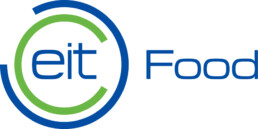Sidestreams
An Untapped Industrial Resource
Food and agricultural industries generate large amounts of nutrient-rich sidestreams. Many are unstable, poorly digestible, and discarded. This wastes resources. KYNDA upcycles sidestreams directly at the source through fermentation.
Fermentation
Nature’s Original Conversion Principle
Fermentation – especially with fungi – is a highly efficient way to convert low-availability nutrients into valuable food ingredients.Submerged fungal fermentation translates this natural principle into scalable industrial processes. KYNDA's approach is purpose-built for food-industry sidestreams.
Mycelium
Protein-rich, versatile ingredient
KYNDA mycelium combines strong nutritional and functional properties:• complete amino acid profile• food-tech functionality• rapid growth• natural umami & kokumiThis creates high value from previously underutilised sidestreams.
Process
Unlocking circular economy
KYNDA's process is efficient, resilient, and decentralised. We provide end-to-end support—from cultures to hardware.Our low CAPEX/OPEX model enables on-site fermentation.
About Us
KYNDA was founded in 2019 by Daniel MacGowan von Holstein and Franziskus Schnabel. Years of R&D led to a core technology addressing the limits of plant-based proteins.Today, KYNDA is a B2B technology company enabling circular value creation.
Vision
Fermentation is key to sustainable nutrition. Our vision is a system without waste and with full biomass utilisation. KYNDA turns sidestreams into nutrition for a resilient, circular food system.
Team

Franziskus Schnabel
COO

Benjamin Schramm-Völkening
Head of Business Development

Hannelore Musterfrau-Schmidt
Mustertitel

Harald Heitmüller-Lorenz
Mustertitel

